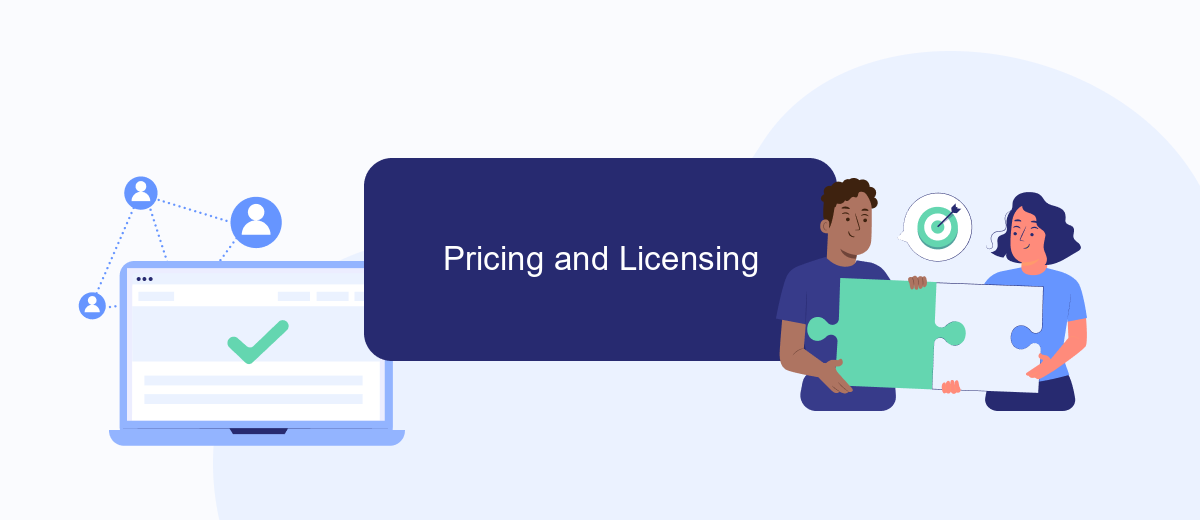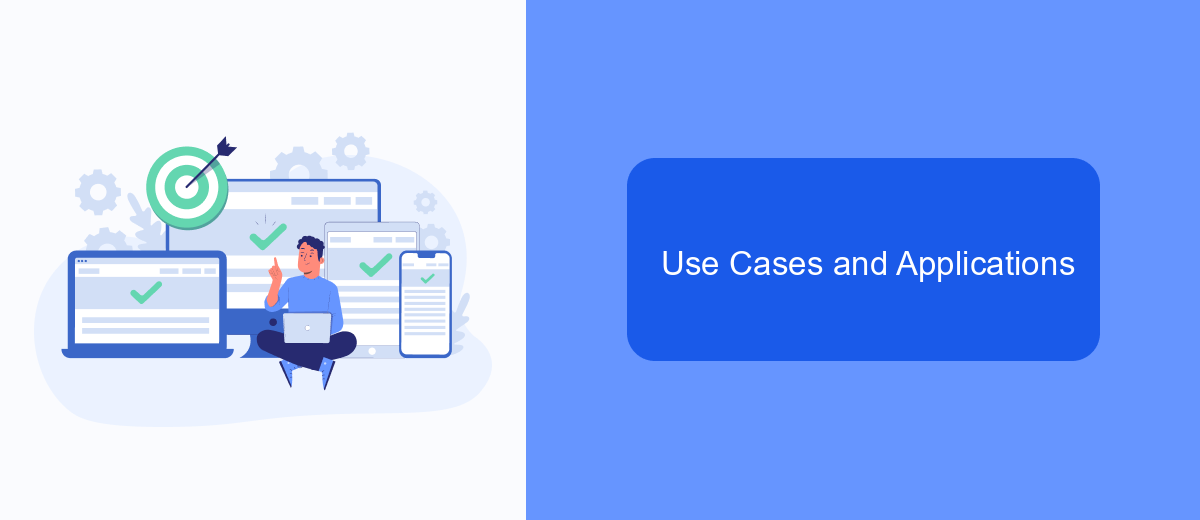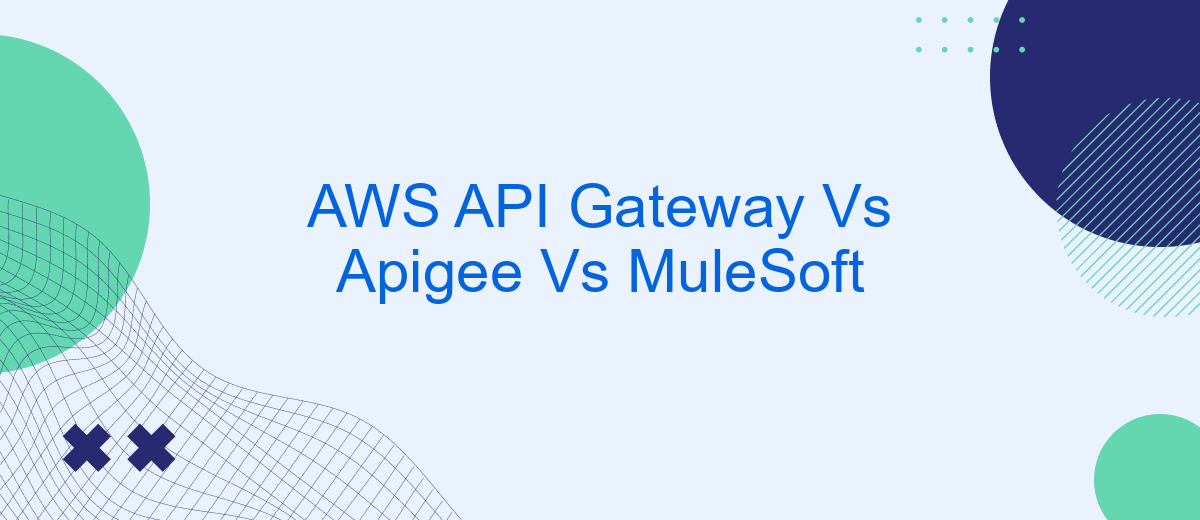In the rapidly evolving landscape of API management, choosing the right platform is crucial for ensuring seamless integration and optimal performance. This article compares three leading solutions: AWS API Gateway, Apigee, and MuleSoft. Each offers unique features and benefits tailored to different business needs. By examining their strengths and weaknesses, we aim to guide you in selecting the best fit for your enterprise.
Introduction
In the rapidly evolving world of digital transformation, businesses are increasingly relying on API management platforms to streamline their operations and enhance connectivity. Three prominent players in this space are AWS API Gateway, Apigee, and MuleSoft. Each of these platforms offers unique features and capabilities tailored to different business needs.
- AWS API Gateway: A robust solution from Amazon Web Services that allows developers to create, publish, maintain, monitor, and secure APIs at any scale.
- Apigee: A Google Cloud product focused on full lifecycle API management, providing tools for analytics, security, and monetization.
- MuleSoft: Known for its Anypoint Platform, MuleSoft offers extensive integration capabilities, allowing businesses to connect applications, data, and devices seamlessly.
Choosing the right API management tool depends on various factors such as scalability, ease of use, and specific business requirements. Additionally, services like SaveMyLeads can complement these platforms by automating lead integrations, further enhancing the efficiency of business processes. Understanding the strengths and limitations of AWS API Gateway, Apigee, and MuleSoft is crucial for making an informed decision.
Features and Capabilities

AWS API Gateway offers robust features such as request/response transformation, caching, and seamless integration with other AWS services like Lambda and DynamoDB. It provides a scalable and cost-effective solution for managing APIs with fine-grained access control and monitoring capabilities. The platform is designed for high availability and includes built-in security features like AWS WAF for web application protection.
Apigee, by Google Cloud, excels in providing advanced API management tools, including traffic management, API analytics, and developer portal capabilities. It supports multi-cloud deployments and offers robust security features like OAuth, JWT, and API key validation. Apigee's integration with Google Cloud services enhances its capabilities for enterprises looking for comprehensive API lifecycle management.
MuleSoft's Anypoint Platform stands out with its unified integration and API management capabilities. It allows for the creation, deployment, and management of APIs and integrations with a single platform. MuleSoft offers connectors for various systems, enabling seamless integration across different environments. Additionally, services like SaveMyLeads can be integrated to automate lead processing and enhance data synchronization across platforms, further extending MuleSoft's integration capabilities.
Pricing and Licensing

When comparing AWS API Gateway, Apigee, and MuleSoft, pricing and licensing are crucial factors to consider as they can significantly impact your budget and overall project costs. Each platform offers distinct pricing models tailored to different needs and scales of operation.
- AWS API Gateway: AWS API Gateway operates on a pay-as-you-go model, charging based on the number of API calls, data transfer, and additional features like caching. This model is highly scalable but can become costly with high traffic.
- Apigee: Apigee offers a subscription-based pricing model with different tiers, providing flexibility for various business sizes. It also includes features like analytics, developer portals, and security, which are bundled into the subscription cost.
- MuleSoft: MuleSoft's pricing is subscription-based as well, often tailored to enterprise needs. The cost includes access to the Anypoint Platform, which offers extensive integration capabilities, API management, and development tools.
Choosing the right platform depends on your specific requirements and budget. For businesses looking to streamline their API integrations, services like SaveMyLeads can provide additional automation and integration solutions, potentially reducing the overall costs and complexity associated with API management.
Use Cases and Applications

When choosing between AWS API Gateway, Apigee, and MuleSoft, it's crucial to consider the specific use cases and applications each platform excels in. AWS API Gateway is ideal for developers building and deploying serverless applications, providing seamless integration with AWS services. It is highly suitable for microservices architecture and real-time data processing.
Apigee, on the other hand, is a strong contender for businesses needing robust API management and analytics. It offers comprehensive API security, traffic management, and developer portal capabilities, making it a preferred choice for enterprises looking to scale their API programs.
- Serverless applications: AWS API Gateway
- Microservices architecture: AWS API Gateway
- API management and analytics: Apigee
- Comprehensive integration solutions: MuleSoft
MuleSoft stands out for its extensive integration capabilities, connecting SaaS and enterprise applications efficiently. It is particularly useful for organizations requiring complex data and application integration. For businesses looking to streamline their integration processes, services like SaveMyLeads can offer additional support by automating lead data transfer between various platforms.
Conclusion
In conclusion, AWS API Gateway, Apigee, and MuleSoft each offer unique strengths and capabilities for managing and integrating APIs. AWS API Gateway excels in scalability and seamless integration with other AWS services, making it a strong choice for those already invested in the AWS ecosystem. Apigee stands out with its robust analytics, security features, and support for hybrid and multi-cloud environments, catering to enterprises looking for comprehensive API management solutions. MuleSoft, on the other hand, provides a powerful integration platform that connects a wide range of applications, data, and devices, making it ideal for organizations seeking extensive connectivity and integration capabilities.
Choosing the right API management tool depends on your specific requirements, existing infrastructure, and long-term goals. For businesses focused on simplifying the integration process, tools like SaveMyLeads can further enhance efficiency by automating lead data transfer between various services and CRM systems. Ultimately, evaluating the features, strengths, and potential limitations of each platform will help you make an informed decision that aligns with your business needs and technological landscape.


FAQ
What are the primary use cases for AWS API Gateway, Apigee, and MuleSoft?
How do these platforms handle API security?
Can these platforms be used for real-time data integration?
Which platform is better for scalability and performance?
What are the options for automating and setting up integrations with these platforms?
If you use Facebook Lead Ads, then you should know what it means to regularly download CSV files and transfer data to various support services. How many times a day do you check for new leads in your ad account? How often do you transfer data to a CRM system, task manager, email service or Google Sheets? Try using the SaveMyLeads online connector. This is a no-code tool with which anyone can set up integrations for Facebook. Spend just a few minutes and you will receive real-time notifications in the messenger about new leads. Another 5-10 minutes of work in SML, and the data from the FB advertising account will be automatically transferred to the CRM system or Email service. The SaveMyLeads system will do the routine work for you, and you will surely like it.
